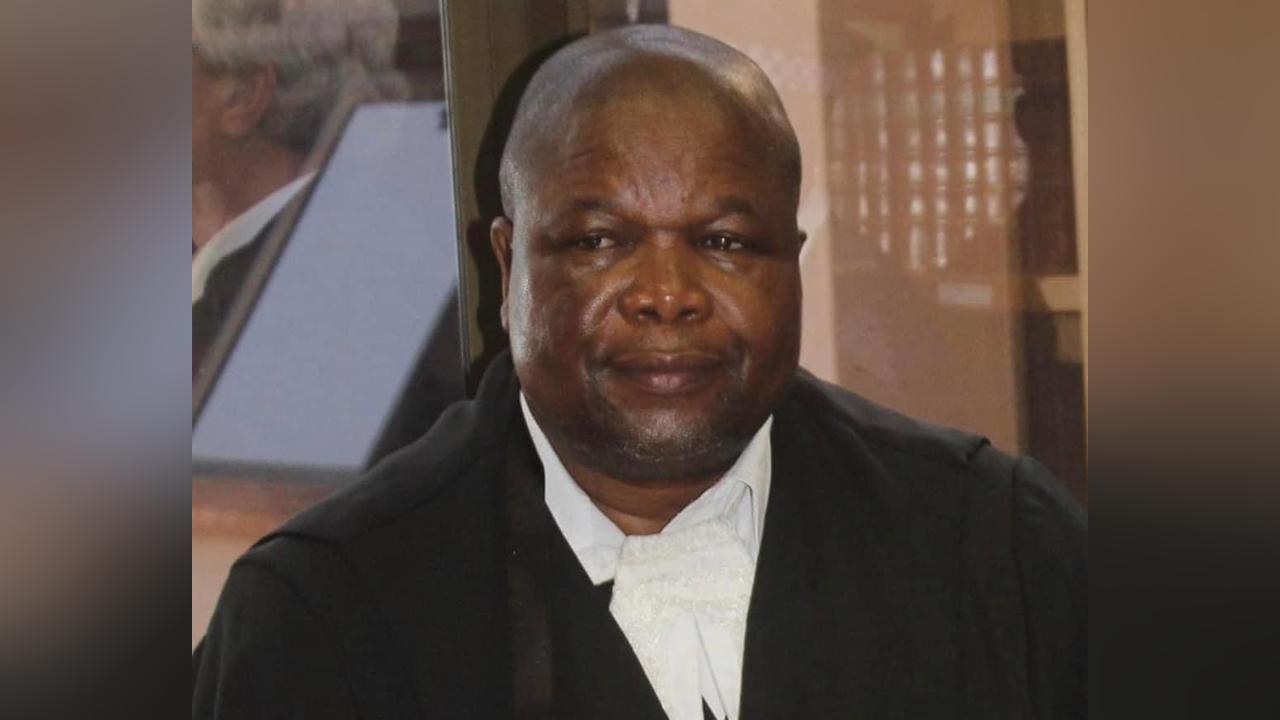Africa-Press – Eswatini. With our judiciary in dire need of rehabilitation, this process requires all hands-on deck if the public complaints about the judiciary at Sibaya, among the legal fraternity and most recently by parliament, are to be dealt with accordingly. Without it, we cannot claim that the rule of law prevails.
An impeachment process against Chief Justice (CJ) Bheki Maphalala was initiated last year but has yet to see the light of day. The Law Society filed a complaint against the CJ for alleged constitutional violations, abuse of office and interference with the administration of justice, among other serious offences.
The society is on record saying the CJ has flatly refused to engage with it on critical issues of the proper administration of justice and flashes the independence of the judiciary card when he is called upon to account for his actions by other arms of the government. It forms one of the main issues that the Law Society of Eswatini impressed upon the new Minister of Justice and Constitutional Affairs, Prince Simelane, to address as a matter of priority.
The minister’s experience with the CJ has not been a pleasant one since he took office, leaving him wondering if he has any say in the judiciary. Some members of parliament now want the minister to lead them to the King to formerly request his intervention on the complaints against the CJ. It remains to be seen if such a request will come to pass, but things do not seem to be getting any better.
Hearing judgements delivered in the absence of the affected parties and sending police officers to hand them over to them ‘along the corridors’ as it were, continues to fuel the need for urgent reforms that will restore public confidence in the judiciary and uphold the rule of law.
According to the World Justice Project, which is an independent multidisciplinary organisation working towards action to advance the rule of law worldwide, there are four (4) universal principles that must be adhered to in order for the rule of law to thrive.
These are: accountability the government as well as private actors are accountable under the law; Just Law: the law is clear, publicised, stable and applied evenly, ensuring human rights as well as property, contract and procedural rights; Open government: the processes by which the law is adopted, administered, adjudicated and enforced are accessible, fair and efficient; Accessible and impartial justice: justice is delivered timely by competent, ethical and independent representatives and neutrals who are accessible, have adequate resources and reflect the make-up of the communities they serve.
Principles
The complaints against the judiciary suggest we fall short on most of these principles and this needs to be addressed urgently by all the relevant stakeholders. The public has had its say; now the role players need to act. The key stakeholders in the judiciary, the lawyers, have their work cut out for them in this process. We are informed that our learned friends are going to the polls this weekend, whose outcome will determine who lawyers entrust to continue where the current executive leaves off.
The outgoing executive committee, known as council, and voted into office on April 24, 2022, is led by President Mangaliso Magagula, whose vice is Sdumo Mdladla, Secretary is Charity Simelane and treasurer is Jose Rodrigues. Council members are Zwelithini Shabangu, Thulani Sibandze, Setsabile Matsebula and Kwanele Magagula.
It is fair to say that this council has been quite active in trying to address the crisis in the judiciary as well as educating the public about its role, the law and the rights of citizens. Through weekly articles in this publication, we are wiser on many legal or constitutional matters and better aware of the implications of various judicial, political, economic, or social developments, or the lack thereof.
They have not been shy about admitting to the negative perceptions and challenges facing lawyers and took time to educate the public on how to avoid costly disputes with lawyers and the role of the lawyers’ disciplinary tribunal, the chairperson of which is appointed by CJ and has two other members of the Law Society who are selected by the chairperson in consultation with the president of the council of the law society.
All in all, law societies play a crucial role in upholding justice, promoting legal education and maintaining ethical standards within the legal profession. These professional organisations are essential for any country as they work to ensure a fair and efficient legal system. Law societies also provide support and guidance for legal professionals, advocate for improvements in the legal system, and act as a regulatory body to maintain standards of professional conduct.
We wish the law society success in its elections and whoever takes charge must know that he carries a great responsibility to lead a process of restoring the rule of law in this country and that this process largely hinges on the integrity of the learned friends who have the requisite moral standing to call for a fair and transparent administration of justice.
Source: TIMES
For More News And Analysis About Eswatini Follow Africa-Press







